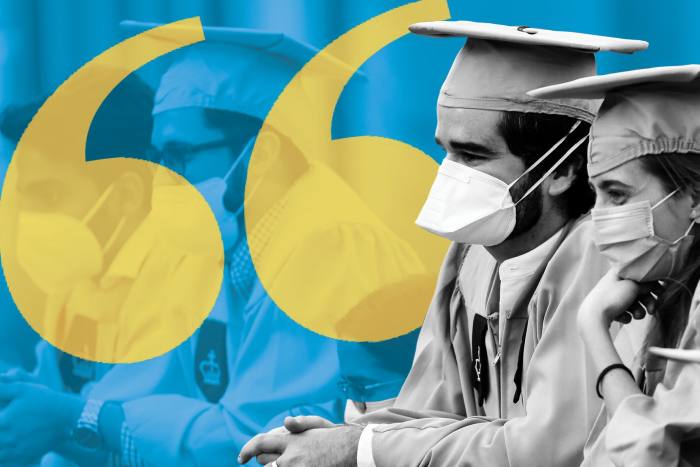[ad_1]
“You’re such an activist,†one of my colleagues whispered to me across our desks, years ago.Â
I asked why he thought that. He said it was because he admired how I advocated for myself at work and pushed back on “inflexible work policyâ€. Looking back, it didn’t make me an activist, just someone who realised that they did not want to continue to work that way.Â
I often hear that “people need to find their voice at workâ€. But we all already have a voice — the truth is just that many of us haven’t felt empowered enough to use it. One of my observations about the world of work is we default far too easily to a parent-child relationship where we become passive recipients, hearing from others that, “This is how it’s always been†— and therefore disempowered to speak up for ourselves and each other.Â
The future of work is community. It’s going to be how we make our voices heard, make changes and build the future of work we want to see. Community can at times feel like something intangible, but it’s where people can come together, support each other and advocate for a greater cause. Investing in that growth is your choice.Â
Nobody wants to be “that†person who speaks out and there can be boss-level victimisation (I have had my fair share). However, grouping together — informally or via employee affinity groups or a union — can be a huge help. The recent peer-to-peer spreadsheet campaigns for pay transparency on social media among freelancers, as well the leaked presentation by 13 aggrieved first-year Goldman workers who demanded change — could become a new way to encourage change.Â
And it is overdue. The past two decades have seen half a million people in the UK suffer from work-related stress to the point of being unable to continue. No wonder people are talking about how they plan to work differently. Some say they want to ask for three days a week, others in the office, or they want to move out of big cities. Wherever you sit in the “at home or five days in the office†debate, it’s clear flexible working is a battle for equality: one study shows male-dominated firms are more likely to insist on workers going back to the office.
The gift that 2020 gave us was space and a chance to work out what is good and bad in our lives and reimagine it to be more sustainable. There is new potential to create a better working life with new choices that were unimaginable even a year ago. The biggest myth that we’ve internalised is that we don’t have influence, that we are cogs in the machine. We all have a voice and influence. It’s not for HR or activists for flexible working to fix.Â
The buildings in which we do our work do not matter so much. There is no business without people and we can only build a new type of business — one that puts people at the centre of decision making by coming together and making our voices heard.
Have you recently graduated? Tell us about the jobs market

The FT wants to hear from graduates and other young people about their experiences of getting their careers off the ground in these uncertain times. Tell us about your experiences via a short survey.
Of course some things will go back to how they were before 2020. But we’ve all seen that we can shape our own working lives, and that our lives can be different. Companies like PwC are listening. It plans to roll out a flexible working policy that will allow its 22,000 UK staff to split their time about half-and-half between home and office after the pandemic.
Goldman Sachs boss David Solomon, however, rejected remote working, labelling it an “aberrationâ€. When companies value employees voices, they are sending a powerful message that they are invested in their wellbeing. What message is he sending? We cannot underestimate the power of people making their voices heard. We’ve seen footballer Marcus Rashford successfully advocate for change on a national scale. This, from the Future of Work Institute, sums it up perfectly: “The activity of work reminds us that we — as individuals, as communities and as a society — can build our own future.â€
Stepping out of a “this is how things are always done†mentality could be 2020’s lasting legacy — we will not get this chance again. It doesn’t make you a maverick, it just makes you an active participant in your own future.Â
The writer is author of ‘The Reset: Ideas to Change How We Work and Live’
[ad_2]
Source link





